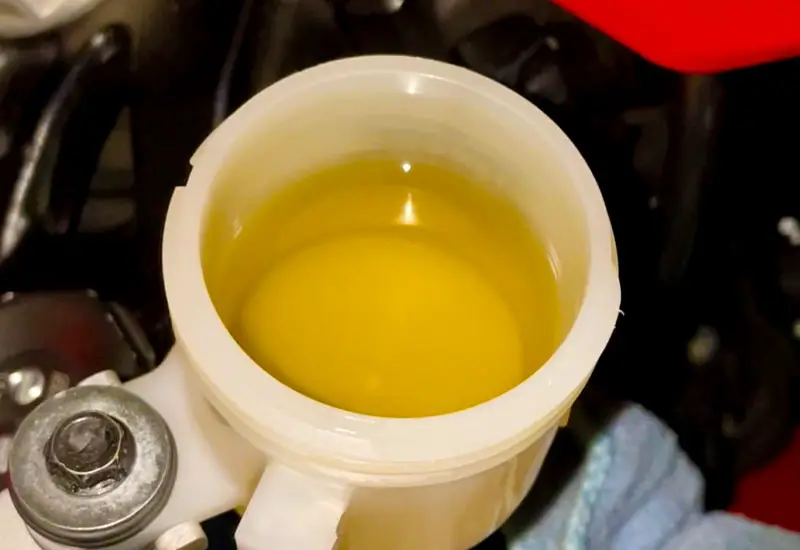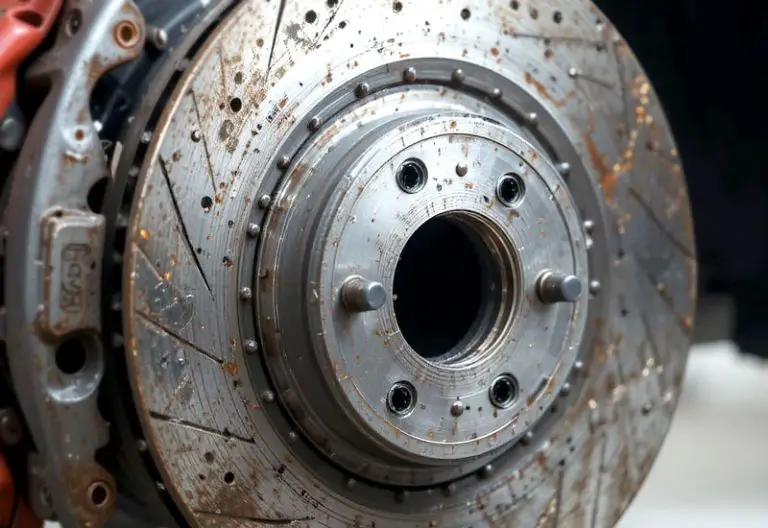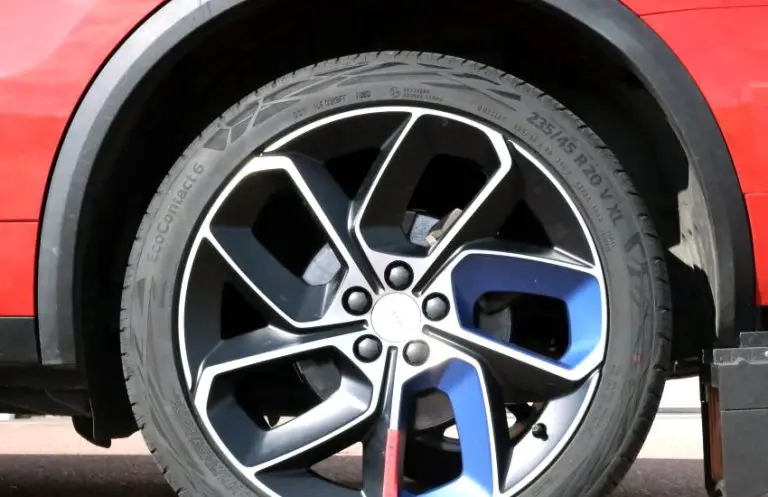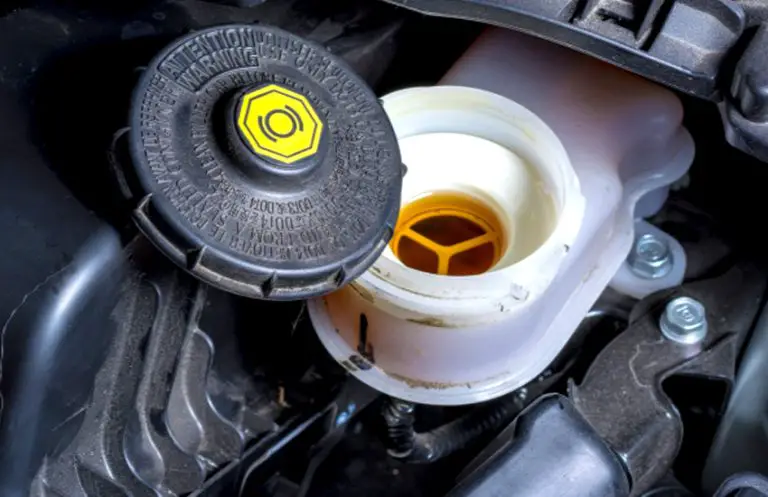Power steering fluid leaks can be a frustrating issue for any car owner, leading to concerns about vehicle performance and safety. One of the most common questions that arise when dealing with a leak in the power steering system is: Can brake fluid stop a power steering leak? While both brake fluid and power steering fluid are essential to a car’s performance, they serve very different purposes. In this article, we’ll explore the relationship between brake fluid and power steering fluid, the potential dangers of using one in place of the other, and how to properly handle a power steering leak to ensure the long-term health of your vehicle.

What is Power Steering Fluid and Its Role?
To understand whether brake fluid can help with a power steering leak, it’s important first to learn about power steering fluid and how it works in your vehicle. Power steering fluid is a specially formulated hydraulic fluid designed to assist in the operation of the power steering system, which makes turning the vehicle’s wheels easier.
The power steering system consists of several key components including the steering wheel, a pump, hydraulic fluid, and hoses that carry the fluid. The pump pressurizes the fluid, which then flows to the steering rack and gearbox, creating the force needed to turn the vehicle’s wheels with little effort from the driver.
In modern vehicles, the power steering system is typically either hydraulic or electric. In hydraulic systems, power steering fluid is essential for creating the pressure needed for smooth steering. If this fluid runs low or leaks, the power steering system will not operate properly, resulting in difficulty when turning the wheel and a risk of damage to the steering components.
Power steering fluid is typically a translucent red or pink liquid, and it is designed to withstand high pressures and temperatures while maintaining its ability to lubricate and protect the components of the steering system.
What is Brake Fluid and Its Role?
Brake fluid, on the other hand, is a completely different type of fluid that serves a critical role in your vehicle’s braking system. Brake fluid is a hydraulic fluid that transmits the force from the brake pedal to the brake components, enabling the vehicle to slow down or stop effectively. It’s specially designed to handle high heat and pressure, especially in the brake lines, ensuring that the brakes can perform optimally during sudden or intense braking situations.
Brake fluid typically comes in a few different types, including DOT (Department of Transportation) fluid ratings such as DOT 3, DOT 4, and DOT 5, as well as mineral oil-based and silicone-based options. Each type of brake fluid has unique properties, including the ability to absorb moisture, which helps prevent corrosion in the brake system.
When you press the brake pedal, the brake fluid transfers the force to the brake calipers or drums, which press against the wheels to slow them down. Just like power steering fluid, brake fluid is also essential for safety and performance, and a loss of brake fluid can lead to brake failure.
Can Brake Fluid Stop a Power Steering Leak?
The idea of using brake fluid as a temporary fix for a power steering leak might be tempting, especially if you’re in a situation where you need to address the issue quickly. However, it’s important to know that brake fluid should never be used in the power steering system. Here’s why:
1. Different Properties and Formulations
Brake fluid and power steering fluid are chemically formulated for very different systems, and each fluid is designed to meet specific requirements. Brake fluid is designed to withstand the high-pressure environment of brake systems, while power steering fluid is designed to lubricate the steering components and provide the necessary pressure for steering assistance.
Brake fluid is much more aggressive in its chemical composition and is hygroscopic, meaning it absorbs moisture from the air over time. This property helps prevent the formation of bubbles in the brake lines, but it can be detrimental to the power steering system. Introducing moisture into the power steering system can cause corrosion, degradation of seals, and potential damage to the steering pump. This can lead to even more significant problems and costly repairs.
2. Risk of Damage to Seals and Hoses
Another reason why brake fluid cannot fix a power steering leak is the risk of damaging the seals and hoses in the power steering system. Brake fluid is often more corrosive to rubber seals and hoses compared to power steering fluid. If brake fluid is introduced into the power steering system, it can cause seals to degrade, leading to further leaks and system failure.
The power steering system relies on the integrity of these rubber seals to keep the fluid in and prevent leaks. Brake fluid’s aggressive nature could cause the seals to dry out or break down faster, resulting in more damage than the original leak. Over time, this can lead to total failure of the power steering system.
3. No Lubrication for the Power Steering Pump
Brake fluid does not have the same lubricating properties as power steering fluid. Power steering fluid is specifically designed to lubricate the steering pump and the various moving components within the system. Without the proper lubrication, the power steering pump can overheat, wear out prematurely, and eventually fail. Brake fluid, on the other hand, is designed for high-pressure applications, not for lubricating moving parts. Using brake fluid in place of power steering fluid could quickly lead to pump failure and more extensive damage to the system.
4. The Potential for System Contamination
If brake fluid is used in the power steering system, it could cause contamination of the fluid. This is particularly problematic if you need to replace the brake fluid or the power steering fluid later on. Mixing different types of fluids can create a chemical reaction, leading to a sludge-like substance that could block or damage critical parts of the steering system. This contamination would require a full flush and replacement of all affected components, resulting in a more expensive and time-consuming repair than simply using the correct power steering fluid in the first place.
5. Temporary Fixes Can Lead to Bigger Problems
While using brake fluid to top off a power steering fluid reservoir may seem like a quick fix, it is unlikely to be effective in the long term. If you have a leak in your power steering system, it’s important to address the root cause of the problem, rather than relying on a temporary solution. Adding brake fluid will not fix the source of the leak, and it could make the situation worse by causing additional damage to the power steering system components.
6. The Dangers of Misuse
It’s also worth noting that using the wrong fluid in any automotive system can be dangerous. Brake fluid is toxic and can cause serious damage to your vehicle’s paintwork, while power steering fluid is specifically formulated to be compatible with the steering components and to reduce wear and tear. Using brake fluid in place of power steering fluid puts you at risk of harming the performance and safety of your vehicle, and it could also lead to costly repairs down the line.
How to Properly Address a Power Steering Leak?
Instead of resorting to brake fluid or other temporary fixes, it’s important to take the correct steps when addressing a power steering leak. Here are the steps to properly diagnose and fix a power steering leak:
1. Inspect the Power Steering System
The first step is to identify the location of the leak. Power steering fluid leaks can occur at various points in the system, including the power steering pump, hoses, steering rack, or fluid reservoir. Look for signs of fluid dripping or staining underneath your vehicle. You can also inspect the components for cracks, wear, or corrosion.
2. Check Fluid Levels
Once you’ve identified a potential leak, check the power steering fluid level. Low fluid levels can exacerbate the issue, so it’s important to top off the fluid with the correct type. Consult your vehicle’s manual to determine the specific type of power steering fluid required for your make and model.
3. Tighten Loose Connections
Sometimes, a loose hose or fitting can cause a power steering fluid leak. If this is the case, tightening the connection may stop the leak. However, if you notice significant damage to the hoses or seals, you’ll likely need to replace the affected parts.
4. Replace Damaged Components
If you’ve found that a component like the power steering pump, hoses, or seals is damaged, it’s essential to replace the faulty parts. This will prevent further leaks and ensure that your power steering system operates properly. Make sure to use high-quality replacement parts that are compatible with your vehicle.
5. Professional Help
If you’re unsure about diagnosing or repairing the leak yourself, it’s best to consult a professional mechanic. They can perform a thorough inspection and ensure that the issue is fixed correctly.
I hope this article has helped clarify why brake fluid should never be used to stop a power steering leak. While it might seem like a quick fix, it can cause more damage in the long run. Always use the correct power steering fluid and address the root cause of any leaks. By doing so, you’ll keep your vehicle running smoothly and avoid costly repairs.
Are These Questions in Your Mind?
Is it safe to use brake fluid in the power steering system?
No, brake fluid should not be used in the power steering system as it can damage seals, hoses, and the power steering pump.
Can brake fluid stop a power steering leak temporarily?
No, brake fluid is not a suitable substitute for power steering fluid and can cause more harm than good.
Do I need to replace the power steering pump if there is a leak?
If the power steering pump is damaged by a leak, it may need to be replaced.
Is it expensive to fix a power steering leak?
The cost of fixing a power steering leak depends on the severity of the leak and whether you need to replace parts such as the pump, hoses, or seals.
Can I drive my car with a power steering leak?
While it may be possible to drive with a small leak, it is not recommended as it can worsen over time and result in steering difficulty and further damage.
Is it dangerous to drive without power steering fluid?
Yes, driving without power steering fluid can cause damage to the steering pump and make steering difficult, increasing the risk of an accident.
Can I use a power steering fluid additive to stop a leak?
Power steering fluid additives may help slow down small leaks, but they are not a permanent solution. It’s best to address the root cause of the leak.
Is it normal for power steering fluid to leak?
No, power steering fluid leaks are not normal and should be addressed promptly to avoid further damage to the system.
Can a leaking power steering hose be repaired?
Yes, a leaking power steering hose can often be repaired or replaced by a mechanic.
Do I need to flush the power steering system after a leak is fixed?
In some cases, it may be necessary to flush the power steering system to remove contaminated fluid after a leak is repaired. Always follow manufacturer recommendations.


